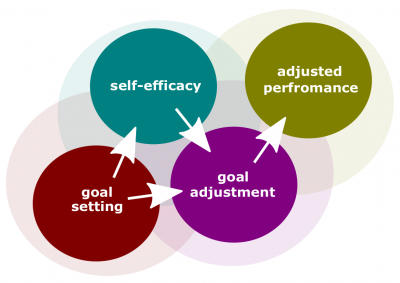Difference between revisions of "Goal-setting theory"
(→Related coursework) |
MariamKhalid (talk | contribs) |
||
| Line 4: | Line 4: | ||
According to [[Organizational Behavior by Robbins and Judge (17th edition)]], | According to [[Organizational Behavior by Robbins and Judge (17th edition)]], | ||
:[[Goal-setting theory]]. A theory that says that specific and difficult goals, with feedback, lead to higher performance. | :[[Goal-setting theory]]. A theory that says that specific and difficult goals, with feedback, lead to higher performance. | ||
| + | According to [[Management by Robbins and Coulter (14th edition)]], | ||
| + | :[[Goal-setting theory]]. The proposition that specific goals increase performance and that difficult goals, when accepted, result in higher performance than do easy goals. | ||
==Related lectures== | ==Related lectures== | ||
*[[Human Motivations Quarter]]. | *[[Human Motivations Quarter]]. | ||
| − | [[Category: Septem Artes Administrativi]][[Category: Articles]] | + | [[Category:Management]][[Category: Septem Artes Administrativi]][[Category: Articles]] |
Latest revision as of 14:58, 3 June 2020
Goal-setting theory (hereinafter, the Theory) is the proposition that suggests that specific goals increase performance and that difficult goals, when accepted, result in higher performance than do easy goals.
Definitions
According to Organizational Behavior by Robbins and Judge (17th edition),
- Goal-setting theory. A theory that says that specific and difficult goals, with feedback, lead to higher performance.
According to Management by Robbins and Coulter (14th edition),
- Goal-setting theory. The proposition that specific goals increase performance and that difficult goals, when accepted, result in higher performance than do easy goals.
